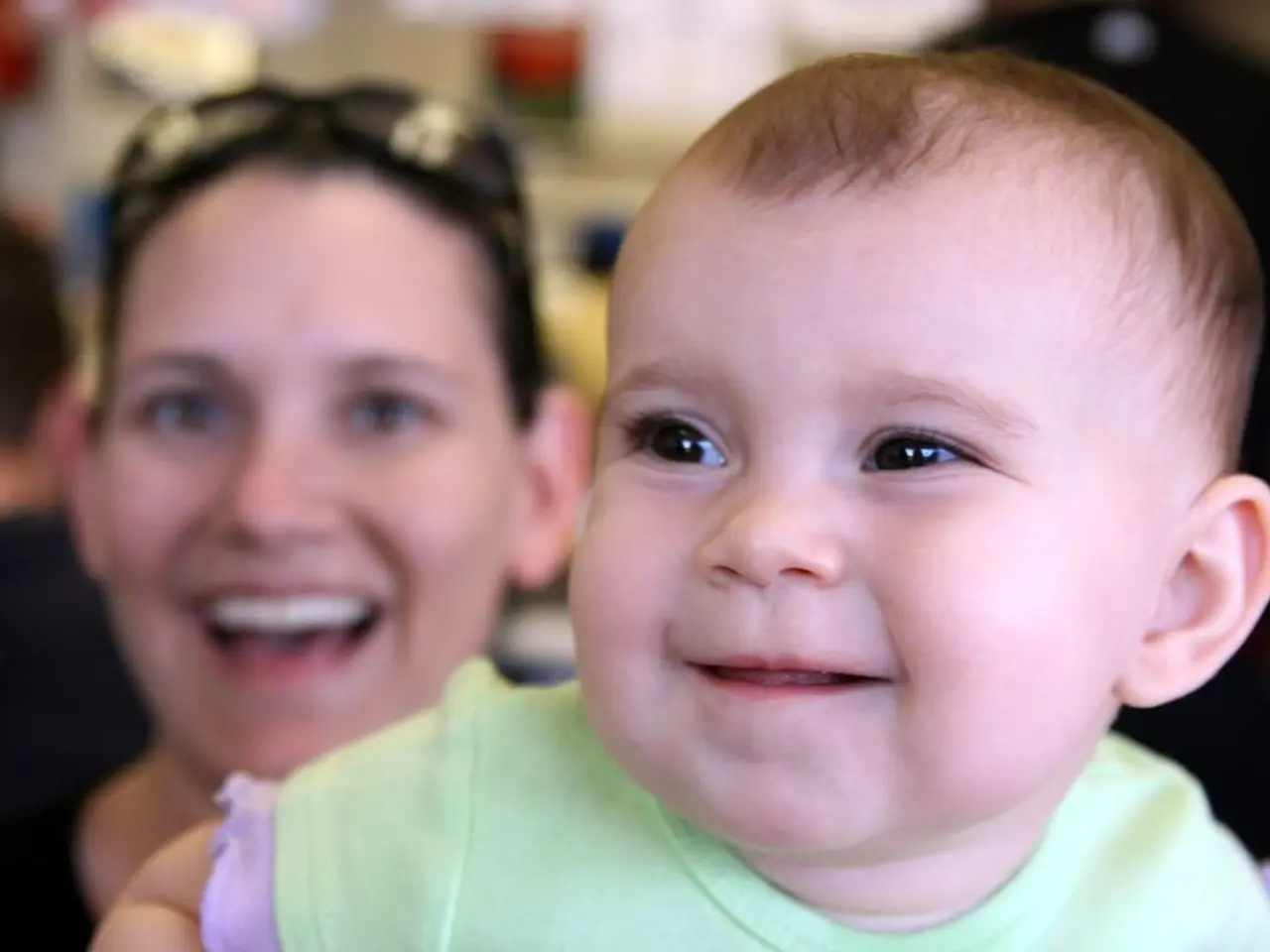Research Uncovers Preference of Parents for Outgoing Children Over Intellectual Ones Among Offspring
**New Study Reveals Mothers' Preferences for Their Children's Personality Traits**
Mothers' preferences for their children's personality traits have been the subject of a recent study conducted by Rachel M. Latham and Sophie von Stumm at Goldsmiths, University of London. The study, which involved 142 British mothers of babies aged from 0 to 12 months old, aimed to shed light on what expectant and new mothers hope for their children's personalities.
The mothers were taught about the Big Five personality traits: extraversion, conscientiousness, neuroticism, agreeableness, and openness. They were then asked to choose which feature they would prefer for their child in each personality category. The findings revealed that more than half of the mothers chose a feature of extraversion as the absolute most important, with most mothers preferring their child to be friendly and/or cheerful.
However, the study did not ignore the potential shortcomings. The presentation of neuroticism in a negative light and the bias towards extroversion in the presentation of extraversion features could have influenced the results. The researchers speculate that had the introverted end of the extraversion spectrum been highlighted, the results could have been different.
In terms of the other personality traits, a good majority of mothers prioritized morality in the agreeableness category, while the majority of mothers placed achievement-striving highest in importance for conscientiousness. Mothers would rather their child be self-conscious in the neuroticism category, and they would like their kids to be imaginative and intellectual in the openness category.
The study provides valuable insights into mothers' preferences for their children's personalities, aligning with research on positive outcomes such as valuing traits like empathy and self-regulation. However, it's important to remember that the actual outcomes can be influenced by a combination of child and parental factors, as well as external environmental factors.
Future research is expected to further tighten up these findings and explore additional details. For instance, it would be interesting to investigate the preferences of fathers regarding their children's personalities, as well as the reasons behind mothers' prioritization of personality traits.
The study's findings are significant, as they offer a glimpse into the factors that shape parents' expectations for their children's personalities. Understanding these preferences can help in creating supportive environments for children, fostering their growth and development in a holistic manner.
- The study on mothers' preferences for their children's personality traits revealed a focus on mental health, as more than half of the mothers chose a feature of extraversion, preferring their child to be friendly and cheerful.
- In terms of family health and wellness, the researchers found that a good majority of mothers prioritized morality in the agreeableness category, while the majority of mothers placed emphasis on achievement-striving for conscientiousness.
- The findings also highlight the importance of parenting, as mothers would rather their child be self-conscious in the neuroticism category, demonstrating a concern for their child's emotional regulation.
- Furthermore, the study sheds light on the role of lifestyle and family dynamics, as it offers insights into the preferences that shape parents' expectations for their children's personalities, potentially influencing relationships within the family.




